Are you planning to take Databricks Certified Data Engineer Associate Certification? If it is yes, then you have to spend some time to craft a plan for successful preparation.
Databricks Certified Data Engineer Associate Certification targets individuals who want to demonstrate their skills in applying the Databricks Lakehouse Platform to complete data engineering tasks.
The Databricks Certified Data Engineer Associate Certification preparation guide covers some of the key topics such as what skills are required, who should take the exam, exam syllabus, and study resources to refer to, and preparation tips to ace the exam.
Let’s dive in!
All about Databricks Certified Data Engineer Associate Certification
Databricks Certified Data Engineer Associate certification can help to validate the individual savvy in the Databricks platform and some of the key concepts in Python and SparkSQL. And also it helps to bring familiarity with topics such as Lakehouse Platform, lakehouse workspace, its architecture, and capabilities.
The roles and responsibilities of Databricks Certified Data Engineer Associate such as:
- Apply basic ETL pipelines and Databricks SQL queries and dashboards into production
- Maintenance of entity permissions
- Need to carry out basic data engineering tasks using Databricks and its associated tools
What are the skills measured in the Databricks Certified Data Engineer Associate Certification exam?
Before taking the Databricks Certified Data Engineer Associate Certification exam, the candidate needs to grasp the following skills and knowledge and they are:
- Databricks Lakehouse Platform (24%): In this domain, you can learn about lakehouse concepts, Platform architecture, and benefits of the Lakehouse to Data Teams.
- ELT with Spark SQL and Python (29%): In this domain, you can get questions from topics such as Relational Entities and Just Enough Python. And topics covered such as how to Build ELT pipelines using Spark SQL & Python, Relational entities, ELT and Manipulating data with Spark SQL & Python.
- Incremental Data Processing (22%): In this domain, you will be questioned on topics such as Structured Streaming, Auto Loader (streaming reads), Multi-hop Architecture, and Delta Live Tables.
- Production Pipelines (16%): In this domain, you can gain skills to build production pipelines for data engineering applications and Databricks SQL queries and dashboards, which includes Workflows and Dashboards.
- Data Governance (9%): In this domain, you can learn on Unity catalog and Entity permissions.
Who should attempt the Databricks Certified Data Engineer Associate Exam?
The Databricks Certified Data Analyst Associate Exam mainly focuses on people who want to enhance their skills and knowledge in data engineering tasks. It also targets the following roles such as:
- Data Analysts
- Data Engineers
- Business Analyst
- ML Data scientists
- Data Engineers
What are the prerequisites for taking the Databricks Certified Data Engineer Associate Certification exam?
There are no formal prerequisites required for taking the Databricks Certified Data Engineer Associate Certification exam. It will be flexible if you have some prior knowledge on the following topics such as:
- Basic knowledge of SQL query syntax, which includes writing queries using SELECT, WHERE, GROUP BY, ORDER BY, LIMIT, and JOIN
- Working knowledge of SQL DDL statements to create, modify, and drop databases and tables
- Basic knowledge of SQL DML statements such as DELETE, INSERT, UPDATE, and MERGE
- Working Experience or knowledge of data engineering practices on cloud platforms, including cloud features such as virtual machines, object storage, identity management, and meta stores
- Familiarity with basic concepts of Python variables, functions, and control flow is highly preferred
Why to take the Databricks Certified Data Engineer Associate Certification exam?
In order to advance your career in Databricks, then the Databricks Certified Data Engineer Associate Certification exam will be your right path. It provides brief knowledge on the fundamentals of Databricks and how to enhance the skills in performing the ETL tasks.
Taking the Databricks Certified Data Engineer Associate Certification exam can bring numerous benefits such as:
- Familiarity with ETL tasks: You may be able to know how to carry out multi-hop architecture ETL tasks using Apache Spark SQL and Python in both batch and incrementally processed paradigms. And you can apply basic ETL pipelines and Databricks SQL queries and dashboards into production while maintaining entity permissions.
- High salary and scope: The demand for data engineers continues to skyrocket in the upcoming years as data grows significantly. And thus, getting the Databricks Certified Data Engineer Associate certificate will offer you a competitive edge. It also leads to higher income and better career opportunities.
What will you learn from the Databricks Certified Data Engineer Associate Certification exam?
By taking the Databricks Certified Data Engineer Associate Certification exam, the candidate can be able to master the following topics:
- Get a clear understanding on how to use the Databricks Lakehouse Platform and its tools
- Can gain knowledge on constructing ETL pipelines with the usage of Apache Spark SQL and Python
- Processing the data incrementally in the batch and streaming mode
- Orchestration of production pipelines
- Get a clear understanding on best security practices in Databricks and apply it whenever required
Exam format for Databricks Certified Data Engineer Associate Certification exam
Exam domains for Databricks Certified Data Engineer Associate Certification exam
The Databricks Certified Data Engineer Associate Certification exam covers five domains and it has been tabulated below:
| Domains | Weightage |
| Databricks Lakehouse Platform and its tools | 24% |
| ELT with Spark SQL and Python | 29% |
| Incremental Data Processing | 22% |
| Production Pipelines | 16% |
| Data Governance | 9% |
Databricks Lakehouse Platform and its tools(24%)
- Data Lakehouse (architecture, descriptions, benefits)
- Data Science and Engineering workspace (clusters, notebooks, data storage)
- Delta Lake (general concepts, table management and manipulation, optimizations
ELT with Spark SQL and Python(29%)
- Relational entities (databases, tables, views)
- ELT (creating tables, writing data to tables, cleaning data, combining and reshaping tables, SQL UDFs)
- Python (facilitating Spark SQL with string manipulation and control flow, passing data between PySpark and Spark SQL)
Incremental Data Processing (22%)
- Structured Streaming (general concepts, triggers, watermarks)
- Auto Loader (streaming reads)
- Multi-hop Architecture (bronze-silver-gold, streaming applications)
- Delta Live Tables (benefits and features)
Production Pipelines (16%)
- Jobs (scheduling, task orchestration, UI)
- Dashboards (endpoints, scheduling, alerting, refreshing)
Data Governance (9%)
- Unity Catalog (benefits and features)
- Entity Permissions (data objects Privileges)
Study materials to refer for the Databricks Certified Data Engineer Associate Certification exam
If you are stepping into the Databricks platform as a fresher, then you need to rely upon the Databricks Exam Guide and this guide can help you to understand exam format and procedure.
There are some training programs offered by Azure Databricks. And utilization of those training programs can help you to get in-depth knowledge on how to use Azure Databricks for data analytics, data engineering, data science, and machine learning.
In order to begin with the learning paths of Databricks Certified Data Engineer Associate Certification exam and study guides, there are some of the few points that need to be covered such as:
- How to Ingest event data, build your lakehouse and analyze customer product usage
- Use SQL to query your data lake with Delta Lake
- Design and train an ML customer model in your lakehouse
databricks.com
Followed by instructor-led video training by top-rated professionals which can assist you to get the deep concepts about Databricks. And you will be able to get into the following concepts such as Databricks Data Science & Engineering Workspace, Databricks SQL, Delta Live Tables, Databricks Repos, Databricks Task Orchestration, and Unity Catalog.
Third, practice tests are found as a great way to enhance your practical skills on domains. Try to utilize it to familiarize yourself with the Databricks Certified Data Engineer Associate Certification concepts.
By the above-mentioned resources, you can be well versed in the chosen domain and clear the exam in the first attempt itself.
Preparation tips for the Databricks Certified Data Engineer Associate Certification exam
Here are some tips to ace the challenge in clearing the Databricks Certified Data Engineer Associate Certification exam like a pro. And they are:
- Download the Databricks Certified Data Engineer Associate Certification exam guide to get familiar with exam objectives and domains.
- Make a calendar and allocate timings to each subtopic. It is advisable not to leave any headings or subtopics, and treat all concepts equally.
- If you don’t have the required hands-on, then make sure to get all the practical skills before applying for the exam.
- Coming to the theoretical syllabus, in addition to instructor-led videos and classroom sessions, you can also check out YouTube videos like AWS Developer Associate Exam Preparation and AWS Services.
- Once you get well-versed with all the prior recommended skills and domain knowledge, it’s time to put your theory into practice. Go through Databricks Certified Data Engineer Associate Certification sample papers, and official practice questions, and validate your prep level. If you analyze any gaps, you have to fill in them, and then attempt the exam again.
Once you feel fully prepared and see no errors on paper, register for the DVA-C01 exam, ace it and add a milestone to your credentials.
FAQs
Q: How difficult is Databricks Data Engineer Associate certification?
A: Passing Databricks Data Engineer Associate certification is somehow difficult but with appropriate practice it can be cleared. Try to utilize more practice tests in order to get familiar with exam domains.
Q: What you’ll from the Databricks Certified Data Engineer Associate exam?
A: By taking Databricks Certified Data Engineer Associate exam, you will learn on following things:
- Understand how to use Databricks Lakehouse Platform and its tools.
- Build ETL pipelines using Apache Spark SQL and Python.
- Process data incrementally in batch and streaming mode.
- Orchestrate production pipelines.
- Understand and follow best security practices in Databricks.
Q: Can we use Databricks without cloud?
A: Databricks workspaces will be hosted on Amazon AWS, Microsoft Azure, and Google Cloud Platform. And thus you can use Databricks on any of these hosting platforms to access data wherever you keep it, regardless of the cloud.
Q: What is the main use of Databricks?
A: The Azure Databricks mainly used to process, store, clean, share, model, and monetize their datasets with the solutions ranging from BI to machine learning. You can use the Azure Databricks platform to construct many different applications to span various data personas.
Q: Is Databricks data engineer certification worth it?
A: Absolutely,taking this kind of certification can provide greater understanding of how Databricks can be used to solve data problems.
Q: Should I learn Databricks or snowflake?
A: Snowflake can enable users to analyze and store data using Amazon S3 or Azure resources. For those needing a top-class data warehouse, Snowflake may be sufficient. For those needing more robust ETL, data science, and machine learning features, Databricks is the winner.
Q: Does Databricks Certified Data Engineer Associate Certification expire?
A: Databricks Certified Data Engineer Associate Certification valid for two years following the date on which each candidate passes the certification exam.
Q: Is Python required for the Databricks Certified Data Engineer Associate exam?
A: Databricks notebooks support Python. And thus it is recommended to have working knowledge on Python.
Q: Is Databricks good for data engineering?
A: Taking Databricks certification provides powerful ETL capabilities for data engineers, data scientists and data analysts with Delta Live Tables (DLT) and thus data engineering becomes easier.
Summary
Hope this blog encompasses everything you need to pass the Databricks Certified Data Engineer Associate Certification. Sharpening your skills and knowledge in the respective domains can help to defeat the challenges in clearing Databricks Certified Data Engineer Associate Certification exam.
To attain consistency in learning, one needs to go through the study materials often. But finding the right study materials might be difficult for you. It can be made simple by just stepping into the Whizlabs platform and you can find reliable and authentic study materials such as practice tests and Azure sandbox to become familiar with real-world settings.
Utilizing those study materials can leverage your practical skills and knowledge in the Databricks platform.
If you have any questions or concerns, please feel free to comment us!
- AWS Security Specialists: Essential in Modern Cybersecurity - August 16, 2024
- Cloud Developer Tools Showdown: AWS vs Azure vs GCP - August 14, 2024
- Master AWS Lambda and API Gateway for Application Development - August 6, 2024
- Benefits of AWS Developer Associate Certification which Can Boost Your Career - July 24, 2024
- Preparation Guide on Datadog Fundamentals Certification - July 17, 2024
- What is DLP in Power Automate? - June 5, 2024
- Top Data Engineering Certifications in 2024 - May 30, 2024
- How Difficult is Google Cloud DevOps Engineer Certification? - May 29, 2024

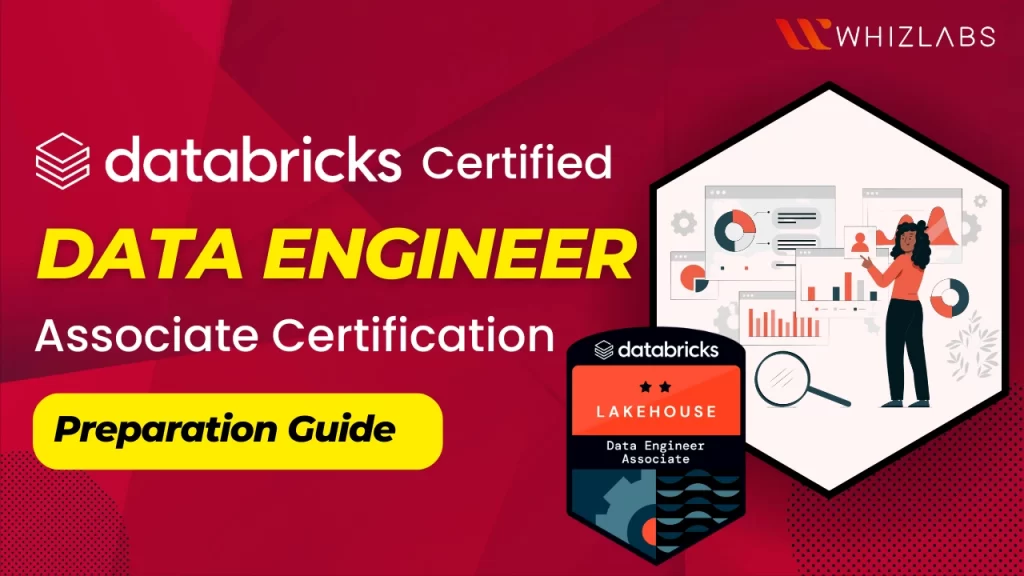
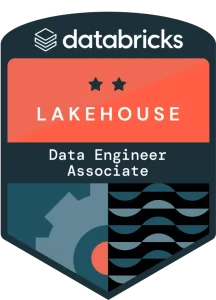
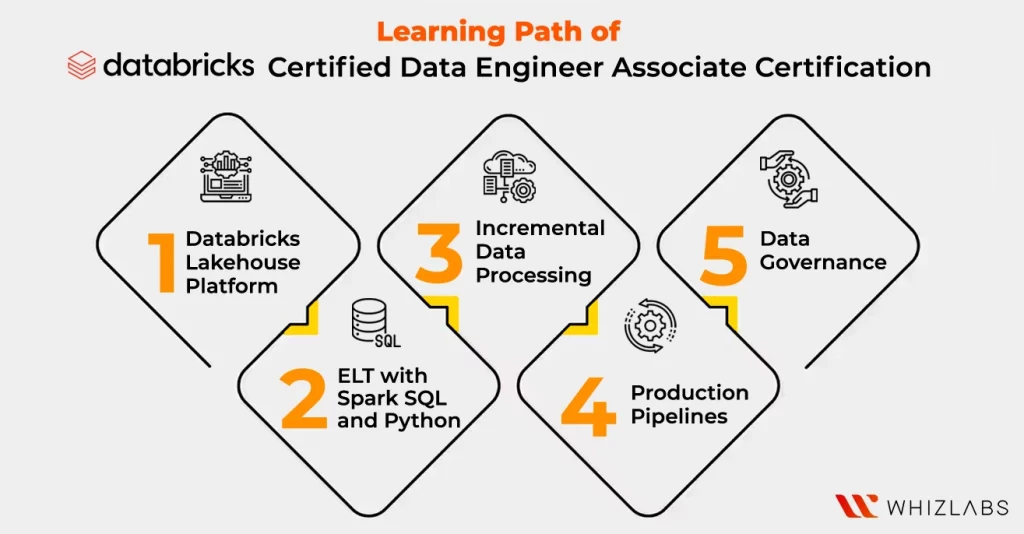
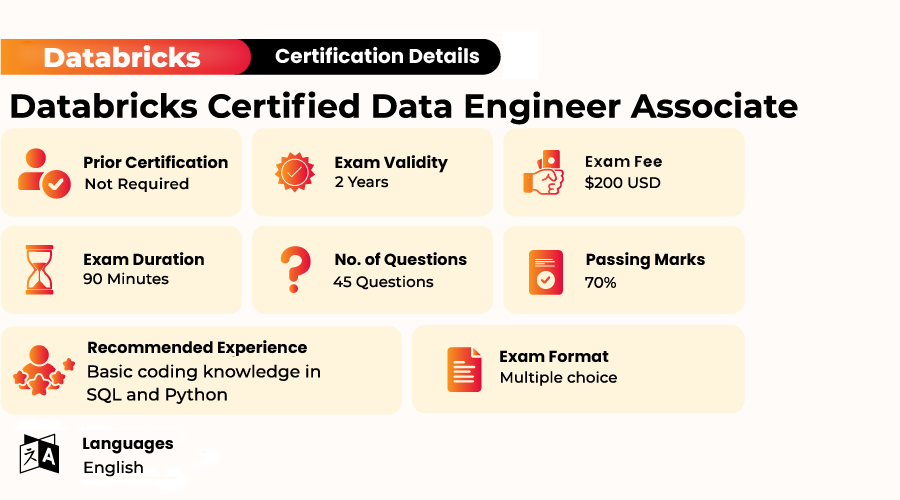

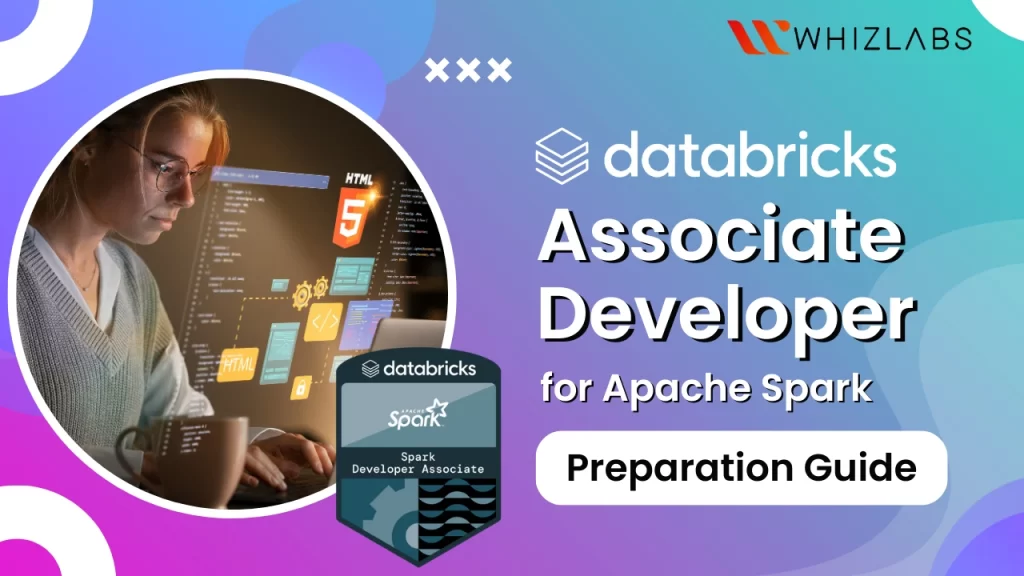
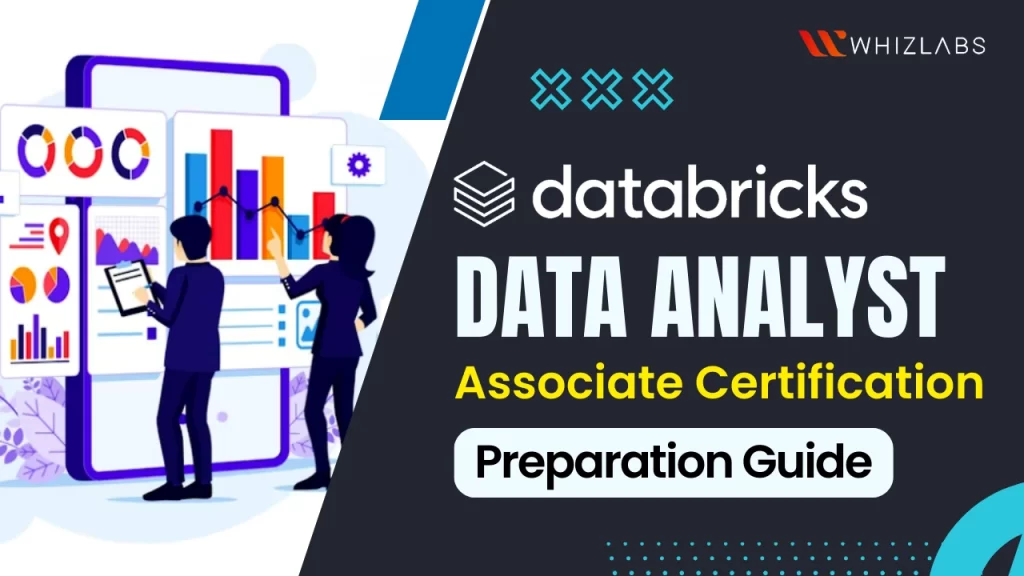
Can’t do the workflows, the sandbox doesn’t allow u to follow this course entirely…